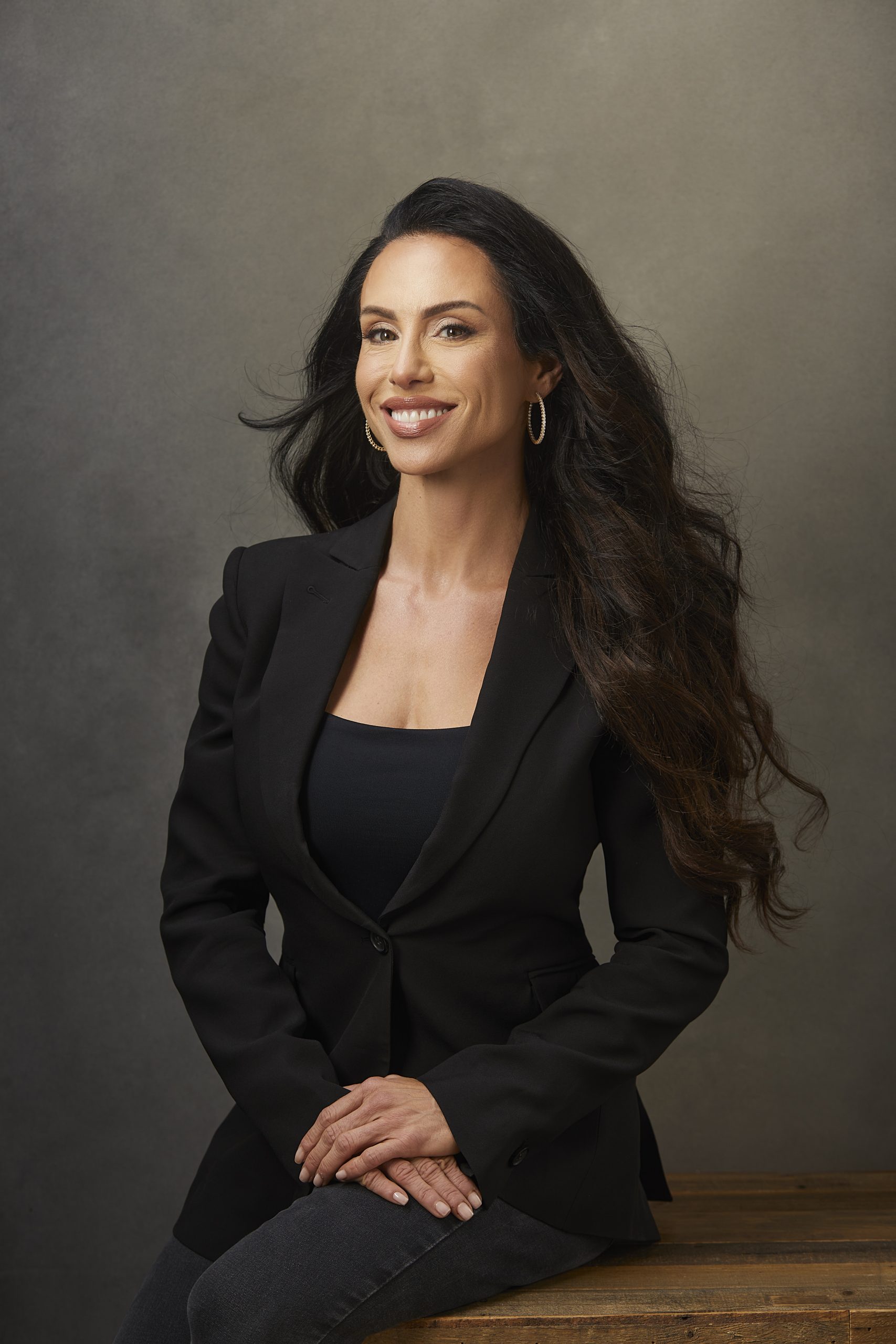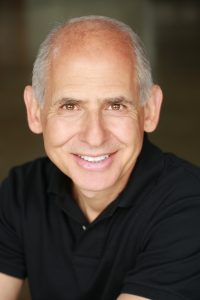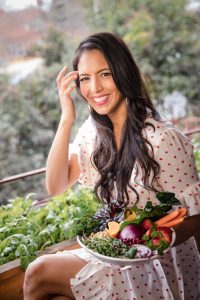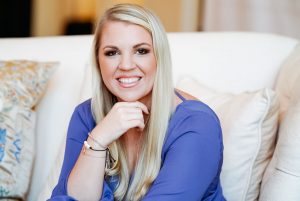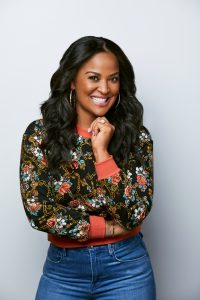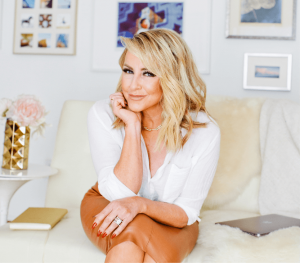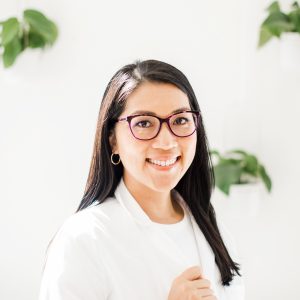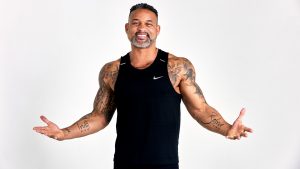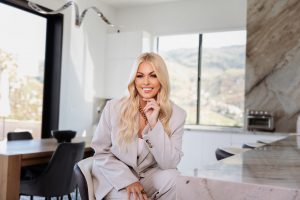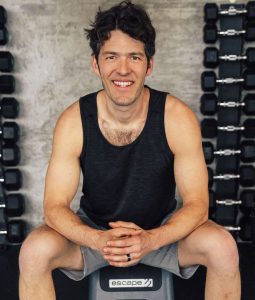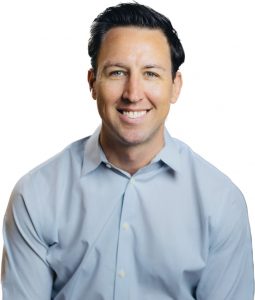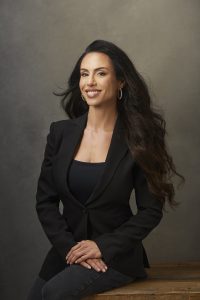SHAWN STEVENSON: Welcome to the 2023 Family Health and Fitness Summit. We’ve got your next interview for you. We’ve got a very, very special treat. We have the one and only Dr. Gabrielle Lyon in the house, and she’s got two lion cubs.
GABRIELLE LYON: I do a little over two and a little over four.
SHAWN STEVENSON: All right. These are real cubs out here and I was just watching some videos of your kids it’s so cute. Now, obviously having you here is really special because we get to talk about the culture that you’re creating in your family, in your household. And my first question is, why is family health and wellness so important to you?
GABRIELLE LYON: It’s everything because I know that the healthier my kids are and the healthier that they grow up and they see us eating right, exercising, they won’t have to have the same burden of challenges to overcome in changing these habits. They don’t have to go through decades of not feeling well. And we’re just going to move them right to the front of the line.
SHAWN STEVENSON: I love that. I love that. Move them to the front of the line because we really are modeling that behavior from our parents.
GABRIELLE LYON: Yeah. And not only that, think about if I instill bad habits with exercise and nutrition, they’re gonna spend a lifetime trying to undo those or be hooked or anchored by ultra-processed foods.
SHAWN STEVENSON: I wanna ask you about some specifics now.
GABRIELLE LYON: Okay.
SHAWN STEVENSON: So let’s talk about a few things that you’ve done yourself to create a culture of health and connection within your family. So maybe we can figure out three of those things.
GABRIELLE LYON: Saturday mornings, every morning we get up and we read a book and we go to a local market. It’s a like a, it’s called Tiny Bees. It’s a local restaurant where they source everything from local farms. And we have breakfast tacos and we sit outside and we talk about what we’re gonna do for the weekend. And we do that every Saturday. So that’s one. Number two is we, well, my husband’s working a lot these days, 100 hours. He’s a surgeon. 100-hour weeks. But together we all sit down and we have an evening meal with at least one out there, and both the kids and we have dinner, each child while still super young, cleans up. Everyone takes part in cleaning or doing something that’s really helpful. And then we talk about the wins for the day. So we each talk about a win and then we talk about a challenge a thing that didn’t go so great.
SHAWN STEVENSON: I love that.
GABRIELLE LYON: We talk about the positive, but we also talk about the negatives ’cause it’s okay if there are things that weren’t just the easiest and we have to normalize that too. Not push under the rug.
SHAWN STEVENSON: Oh, so good. So we’ve got the Saturday family health and connection day. And we’ve got kids helping post dinner and eating together. And we’ve got that last one was?
GABRIELLE LYON: The last one is it is group exercise time. So Sundays, because the kids are home as we always do, so in our garage it’s set up to exercise and the kids also exercise with us. We may or may not play Taylor Swift on repeat…
[laughter]
GABRIELLE LYON: Because we’re really into Shake It Of these days on repeat and whether they dance or do gymnastics, and my son has little weights, I wanna share something with you that was the sweetest thing I’d ever seen. In the morning before school. My daughter ran up to the fourth floor. And keep in mind she’s four and by herself, ’cause we have videos, she’s practicing break dancing.
[laughter]
GABRIELLE LYON: And doing yoga, and doing pushups and doing lunges.
SHAWN STEVENSON: Wow.
GABRIELLE LYON: Because she was getting ready to go to school before she went to school.
SHAWN STEVENSON: And nobody told her to do that.
GABRIELLE LYON: Nobody told her to do it. I was so touched and taken aback that I recorded the, I kept on a recording. I probably watched it 500 times.
SHAWN STEVENSON: Oh wow.
GABRIELLE LYON: Because she’s doing something on her own to prep herself for the day. And she’s four.
SHAWN STEVENSON: Yeah. That’s really speaks to, again, what this is really about, which is exposures for our kids because they’re gonna have their unique expression of things. You never know what they’re gonna pick up, but if you’re creating a culture where those things are possible, then the outcomes are gonna be there. And same thing I’ve seen, I’ve gotten up in the morning and seen my at the time maybe he was like nine or 10 and he’s outside in the backyard working out just because… Again, like I didn’t tell him to do it, but it was a part of his plan that he wanted to employ, let alone my oldest son. Sometimes, I mean, regardless of what’s going on in his life, I had to try to create some rules to get this kid to not leave the house at 5:00 AM to train.
SHAWN STEVENSON: Despite it, he, it might be out till 1:00 AM but like that’s a higher quality problem to try to modulate with the kid to try to get them to not be that guy who’s getting up and working out first thing. And being an inspiration to others as well. But again, our kids are gonna pick these things up from the environment and they’re gonna be out here in the world as well. And that’s why it’s even more important than ever to create a solid foundation for them to start to live from. And so this brings me to the next question, which is a great tie in and how you get your kids involved in the kitchen. You already mentioned they’re helping with the cleanup so our little kids can help. Is that what you’re saying?
GABRIELLE LYON: So they should. People will say, oh, they’re too young for chores. Well, they’re not chores. This is about you being part of a family. These are the things that have to get done If there’s food that falls on the floor. Okay. Which one of you is in charge of cleaning it up? And they’re all involved. Not so much on the cooking aspect ’cause I really don’t like eating the shells of the egg…
[laughter]
GABRIELLE LYON: And the omelet. So that’s a hard pass.
SHAWN STEVENSON: I heard there’s calcium in there.
GABRIELLE LYON: Yep. Well, hard pass for me, but we involve them in exercise and eating right and cleanup.
SHAWN STEVENSON: Yeah. I love that. And that’s, again, if we acknowledge how evolved the tiniest of humans were getting involved and contributing, finding a way to, so even just again, modeling us, we have these little like fake cooking sets, for example, that we might have in a household. Your kids will just copy what they’re seeing. And so being able to have that contribution, that feeling of contribution. There’s something about when our kids are small, a lot of times they just want to be in the room. Right. They wanna be in the kitchen. But, and I’ve been guilty of this as well, because we’re trying to be full speed ahead. Sometimes we can invite them to remove themselves from the environment. And also, I had one grandmother who she didn’t want you in, in around when she’s cooking because that’s her domain.
SHAWN STEVENSON: And another grandma invited me in and let me get involved and just see what she was doing. And so, again, we get to proactively create these things. And it doesn’t have to be a cookie cutter, one size fits all, but giving our kids a chance to contribute, but also picking up some valuable life skills. Because I would imagine pretty soon they’re gonna be helping out, especially when they can figure out not putting any shells in the egg, helping out with cooking.
GABRIELLE LYON: Yeah. They will. I can’t wait for them. And the other thing that we do is we’ll pick something. So, hey, do you want to make this? We’ll do low sugar cookies or something. So it’s not, you know, I’m very careful in not to alienate this idea. I mean, she does interface. Both my children interface with the outside world. So if I’m at home telling them that cookies are bad or this food is bad, I’m very careful about how we show it to them and how we speak to them about it. We’ll do little makeshift things that are maybe a better choice. And I’ll say, Hey, so this is a better choice for that thing you liked. You know you and I were talking about SpaghettiOs, there’s probably a healthier way to make that. So I’ll find out what they like at school and then we’ll make some a healthier rendition of that at home.
SHAWN STEVENSON: I love that. Healthier rendition in instead of giving morality to food.
GABRIELLE LYON: Right.
SHAWN STEVENSON: Which can lead us down a really tricky path.
GABRIELLE LYON: Eating disorder, any of the kind of you against me and us against them. Yes. No.
SHAWN STEVENSON: Awesome. Now, a big question here. Have you ever had to deal with a kid who’s a picky eater? And do you have any tips for parents on expanding the range of foods that their kids are eating?
GABRIELLE LYON: I started really early. I knew this was gonna be a problem, and I’m sure some of the moms are gonna cringe, but I started feeding my kids liver very early. I puree liver doesn’t have to be a lot. And I would just, here you guys, go open up. And so I started introducing foods extremely young. That is one of the first foods that they were eating. So that’s one way. And then the other thing is, you had mentioned also remove the obstacles. I don’t keep things around and if it I really can’t get, my daughter does not like vegetables. We’ll figure out something she likes and then we’ll cut it up really small and put it in there. But exposure is key. Again, you said that we crave what we are cultured to crave. And by limiting that is really helpful. So sneaky, but start early with the palate expansion.
SHAWN STEVENSON: So good. So good. All right. Now being that you have a culture that you’ve built already where you guys are sitting down and eating together, is there anything in particular that you’ve created is kind of like a tradition in the way that you’re doing that?
GABRIELLE LYON: That’s a great question. I don’t know if there is, but when we talk about food I would say we always, I mean, I do educate them very young. We talk, okay, so this is your protein, this is your carbohydrate. This is good for X, Y, and Z. So I educate them young. And I also, before they eat, we always say what are you thankful for? Because to be able to eat without stress is a privilege for us and them.
SHAWN STEVENSON: Yeah. I love that. So that’s, again, just implementing those little kind of cultural pieces. It even is setting the tone for the process of eating. Right. Just being able to stop. And one of the interesting things that we’re seeing is a switchover with the sympathetic to the parasympathetic. Just when you sit down with people that you love. We talked about this earlier, of course, of oxytocin getting produced. Humans are really good at this. Women are even better with oxytocin. And you also, you rub off on us a lot. And we have that power as parents with our kids and the energy that we’re bringing to it. And kind of even setting the tone with a, with a practice like that. All right, I’ve got one, maybe two more questions for you. I want to ask you about groceries. All right. Because you, as a mandate, you’re eating higher quality food. So groceries can be expensive, especially if you’re eating, unfortunately we have a system that’s structured in a way that makes poor quality food very cheap. So…
GABRIELLE LYON: But costly.
SHAWN STEVENSON: Say more. Say more.
[chuckle]
GABRIELLE LYON: I’ve thought about this a lot. The low quality food is cheap at the register, but really costly. It’s easy and cheap to eat bad, but the price you pay is exponentially more expensive.
SHAWN STEVENSON: You know about the price we pay more than most. And you working with elderly populations as a physician, talk about it.
GABRIELLE LYON: Yeah. I mean, one of the things is it’s cheap to eat poor, and it’s designed that way. And if you do that over a lifetime, the end result, it’s devastating. And by the way, good foods shouldn’t be so expensive and unachievable for people. Think about it, even the older individuals who are on a fixed budget, it’s much easier culturally for them to get ultra-processed foods not something that needs to happen.
SHAWN STEVENSON: I can’t not ask you this question. Having you here and you being the pioneering voice in muscle-centric medicine, you mentioned earlier about having some fitness as a part of your culture with your kids. Is there any credibility to the idea, the thing that’s integrated in our culture that kids are too young to do strength training?
GABRIELLE LYON: No. No. Actually, again in my book, I said there’s a few references and pediatric associations, children can be active and fit as young as soon as they can start to walk. Obviously we’re not talking about lifting really heavy weights, but they can use body weights and they can ultimately use weights. They can move things against resistance, not a max out deadlift or bench press, but those muscle cells, they’re primed for health. And it’s one of the most important things that you can do.
SHAWN STEVENSON: Wow. One of the most important things that we could do, so…
GABRIELLE LYON: Ever.
SHAWN STEVENSON: Ever.
[laughter]
GABRIELLE LYON: Start young. Start young. I mean, we’re born with a certain amount of muscle fibers. We can change those fibers, and those fibers can grow bigger, but we have the muscle cells that we have.
SHAWN STEVENSON: So really setting a template, potentially.
GABRIELLE LYON: It is. It’s a template for maximizing and optimizing genetic potential. Muscular genetic potential, which then lays the foundation for foods from eat smarter. Where are they gonna go? They’re all gonna go to muscle, and you create a healthy metabolic network.
SHAWN STEVENSON: All right. So I’m just gonna ask you the, the common question. So working out as a kid is that’s not gonna stunt your growth.
GABRIELLE LYON: That is not going to stunt your growth.
SHAWN STEVENSON: Okay. All right. You heard it here, everybody. Like this is a big myth in our culture. And again, unfortunately we’re focused on the wrong thing. Every time I talk to you, that’s what I feel. I get a redirection in my attention. And parents are so concerned about, for example a kid having their growth stunted from exercise, but we’re not worried about them eating Lucky Charms. Right. We’re not worried about them spending 10 hours a day on a screen. Right. We are focused on the wrong thing.
GABRIELLE LYON: Yes. We’re worried about them eating too much protein and exercising.
[laughter]
SHAWN STEVENSON: Right. Silly us. But hey, you know, the thing is, again, we get to learn from people like you and get our perspective reframed and focus on creating a family culture of health and fitness. And that’s what this summit is all about.
GABRIELLE LYON: I love it. I love it. It you, when you do that, you ultimately make a world that is resilient and capable and sturdy and strong. And it starts the culture of the family.
SHAWN STEVENSON: Awesome. Well, I appreciate you so much for doing this. You’ve got an epic new book out.
GABRIELLE LYON: Yes.
SHAWN STEVENSON: That I want everybody to get a copy of. Can you talk a little bit about that book?
GABRIELLE LYON: Yes. My book, Forever Strong, it talks, it reshapes the paradigm of thinking about health and wellness, about muscle being the pinnacle, not just about exercise, but truly the pinnacle for health and wellness and all the ways in which you need to optimize that.
SHAWN STEVENSON: Awesome. And people can find the book where.
GABRIELLE LYON: At my website, Dr. Gabrielle Lyon or Amazon, any bookstore, and they can check on my Instagram, all the places.
SHAWN STEVENSON: Awesome. Well, you’re the best and I really appreciate you and we’re gonna put your information and where people can get the book in the notes for this. And also, again, just thank you so much for being a leader in this field and helping me so much because there were certain gaps in just how certain outcomes would happen with various studies that I’ve been on top of for a couple of decades now. I’ve been in this field and you’ve really helped to bring so much life to this and really empower me and empower everybody by understanding the power of muscle and that we have this really remarkable reservoir, as I’ve learned from you, of anti-aging hormones of immune factors that we can utilize more so than anything else. We can actually build this reservoir. Right. It’s so powerful.
GABRIELLE LYON: So powerful.
SHAWN STEVENSON: Yeah.
GABRIELLE LYON: Thank you so much.
SHAWN STEVENSON: Yeah. It’s my honor. Thank you so much for joining us everybody. We’ve got Dr. Gabrielle Lyon here for the Family Health and Fitness Summit.
